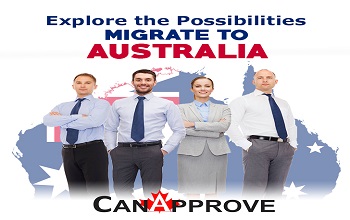Canada, which has a warm and welcoming policy towards immigrants, has been ranked the second-best country to live as an immigrant by the US News and World Report. The first place was won by Sweden. The U.S. News and World Report assessed 80 countries on a slew of social and economic criteria such as economic stability, income equality and labour markerts to prepare the ranking. Around 21000 people were also surveyed for the purpose. The share of migrants in a country’s population, the amount of money they send abroad and the United Nations rankings of integration policies in different countries were also taken into consideration.
Canada emerged strong not only because of its stable economy but for the integration efforts for immigrants such as language training. Moreover, Canada has the first position as far as the Education criterion is concerned. Canada provides free and mandatory primary and secondary education and the provinces are allowed to design their education system taking the local factors into consideration.
The first five positions in the ranking have been won by Sweden, Canada, Switzerland, Australia and Germany. Canada has been ranked better than countries such as Australia and New Zealand, which have ‘Expression of Interest’ economic immigration systems similar to the Express Entry system of Canada. Canada also has higher rank than countries that have similar climate such as Finland and Norway. And the countries like the United States which also have similar mixed market economies do not even offer a competition to Canada.
Canada has first rank in Quality of Life by doing best in factors such as economic stability, good job market, safety, political stability, family friendliness, well-developed public education system, well-developed public health system and income quality. Canada also has fourth rank in citizenship and seventh rank in entrepreneurship.
A number of immigration initiatives have recently been launched by Canada, as the country will be welcoming around 300,000 new immigrants to the country in the year 2017. Changes were introduced to the country’s Express Entry system twice recently in favour of aspiring immigrants. Those who have siblings living in Canada and knowledge of French language can now have more points. Last year, additional points have also been added for international graduates from Canadian universities. Additionally, those eligible for a qualified job offer will be given more points for education and experience. This change was introduced last year. The country has also introduced a two-week Canada visa processing system as part of the Global Talent Stream, through which competent candidates can enter the country through one of the quickest visa awarding process in the world.








